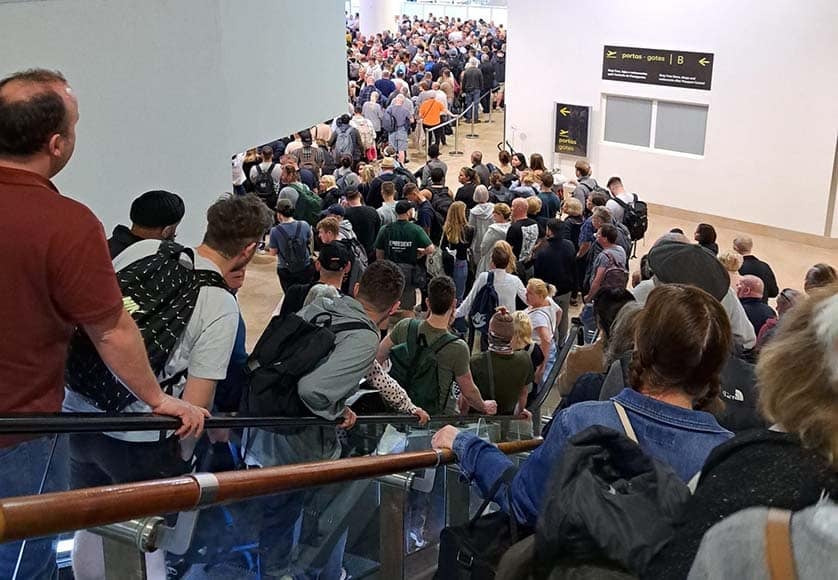
The Portuguese will vote on Sunday in favor of “alternation,” or concern about a democracy “threatened” by the rise of populism, in legislative elections in which the center-right opposition is favored after eight years of socialist rule.
Three months before the European elections, these elections in Portugal may confirm that the far right is on the rise across the Old Continent, as Italian and Dutch voters have shown.
The Iberian country was one of the few countries in Europe led by the left when outgoing Prime Minister Antonio Costa (62 years old) resigned in early November, abandoning his candidacy for a new term after he was cited in an investigation on charges of influence peddling.
Thomas Almeida (25 years old), a businessman who voted at a high school in central Lisbon, told AFP that “democratic rotation is a positive thing,” welcoming the opposition leader’s commitment “not to ally with the extreme right to seize power.”
“This election is completely different from others, because our democracy is threatened for the first time,” said Sofia Manuel, a 34-year-old programmer, worried, while next month Portugal will celebrate the 50th anniversary of the Carnation Revolution that ended. Fascist dictatorship for almost as long.
– 'Calm and optimistic' –
The media will broadcast several opinion polls at 8 p.m., and the official results of the vote, in which 10.8 million voters are expected to participate, will be announced later in the evening.
The Elections Administration announced that the turnout rate by noon reached 25.21%, high compared to the last legislative elections (23.27%).
Luis Montenegro, 51 years old, said after voting in Espinho, near Porto (north), “I am very calm and very optimistic.”
As the vote approached, his party was leading in the opinion polls with just over 30% of voting intentions and a slight lead over the Socialist Party, which was grouped around 46-year-old Pedro Nuno Santos.
The third political force since the 2022 elections, which the Socialist Party won with an absolute majority, the anti-regime Chiga (Enough) party led by Andre Ventura (41), could double its previous result of 7.2%.
According to pre-election polls, the entire right (composed of the Democratic Action Party, Chiga and the Liberal Initiative) should have a majority in the next parliament.
But Luis Montenegro, a longtime lawmaker and then head of the parliamentary group, has already ruled out forming a government with the support of the far-right, which could risk causing a deadlock if he does not secure a 230-seat majority. Even through alliance with the liberals.
– 'Demographic changes' –
For his part, Pedro Nuno Santos, a former minister from the left wing of the Socialist Party, called on the Portuguese on Sunday to “vote en masse” so that the country can continue to “move forward.”
In his election campaign, populist Andre Ventura accused the two main central parties, which have shared power since the advent of democracy, of being “two sides of the same coin that must be fought.”
The law professor and former football commentator, known for his xenophobic attacks against the Roma minority, voted late in the morning at a school in the capital.
“With all the social, demographic and economic changes, Portuguese feel that they must vote and that they have a say in ‘political’ choices,” he said on Sunday, anticipating increased participation.
Despite strengthening public finances, growth above the European average, and unemployment at record lows, the socialist government's record has been tarnished by inflation, dysfunctional health services and schools, as well as a major housing crisis.
Added to this is a series of corruption scandals, which eventually brought down Antonio Costa, and the doubling of the migrant population within five years, two promising topics for the far right.
bur-tsc/cr






